Have you ever seen an image on social media, somebody's blog, or a news website that shows an iPhone or iPad screenshot with an actual iPhone or iPad model framed around it? You can do that too, and it's really easy to accomplish with a third-party app — but you can do the same thing with a shortcut that won't bug you to pay or subscribe.
The Problem with Screenshot-Framing Apps
There are many tools in the App Store that can add iPhone and iPad frames to your screenshots. Still, most have expensive in-app subscriptions, such as Screenshots Pro, which charges a $1.49 monthly or $14.99 annual subscription to unlock screenshot frames, though you could also pay $29.99 once instead of subscribing.
Other apps like iFrame and FrameWork are cheaper, costing only $0.99 one time, but you'll be missing out on iPad models. And you'll also find a lot of outdated apps, such as Screen Frame Maker, which does not support newer device frames.
Screenshot Maker Pro has everything you could want when it comes to device frames — all iPhone and iPad models, all color variations, different viewing angles, shadows, etc. — but it's one screenshot at a time. Plus, there are ads, and it limits you to two saves per day unless you spend $9.99 to remove ads and the save limit.
A Better Solution: The Apple Frames Shortcut
If you don't need anything fancy or expensive, try the Apple Frames shortcut, which makes it super easy to frame your screenshots in full-face view. You choose the screenshot or screenshots, and then the shortcut analyzes their resolutions to find the matching device type. It then adds the device frames and puts the screenshots side by side if you choose more than one screenshot. It's free and supports most newer Apple devices, including:
- iPhone 13 series (standard, mini, Pro, and Pro Max sizes)
- iPhone 12 series (standard, mini, Pro, and Pro Max sizes)
- iPhone 11 series (standard, Pro, and Pro Max sizes)
- iPhone 8 series (standard and Plus sizes)
- iPhone SE (1st, 2nd, and 3rd Generations)
- iPad (9th Generation)
- iPad Pro 11-inch (3rd Generation)
- iPad Pro 12.9-inch (3rd, 4th, and 5th Generations)
- iPad Air 10.9-inch (4th Generation)
- iPad mini (6th Generation)
- Apple Watch Series 4–6 (40 mm and 44 mm models)
- Apple Watch Series 7 (only the 45 mm model)
- iMac 2021 (24-inch model)
- MacBook Air 2020
- MacBook Pro 2021 (all models)
Step 1: Install the Apple Frames Shortcut
The shortcut is called Apple Frames and was created by Federico Viticci, founder and editor-in-chief of MacStories. It's straightforward to use and has comments in the workflow if you're interested in learning how to build more in-depth shortcuts or are just curious about how the shortcut works.
- iCloud Shortcuts Download Link: Apple Frames (January 2022 version)
Open the shortcut's download link in Shortcuts. If it doesn't automatically take you there, tap "Open" or "Get Shortcut." It will then ask you what language you want the shortcut to use. There are nine language options: English, Italian, Spanish, Dutch, French, Portuguese, German, Chinese, and Czech. Delete everything except your preferred language, and tap "Add Shortcut" to add it to your shortcuts library.
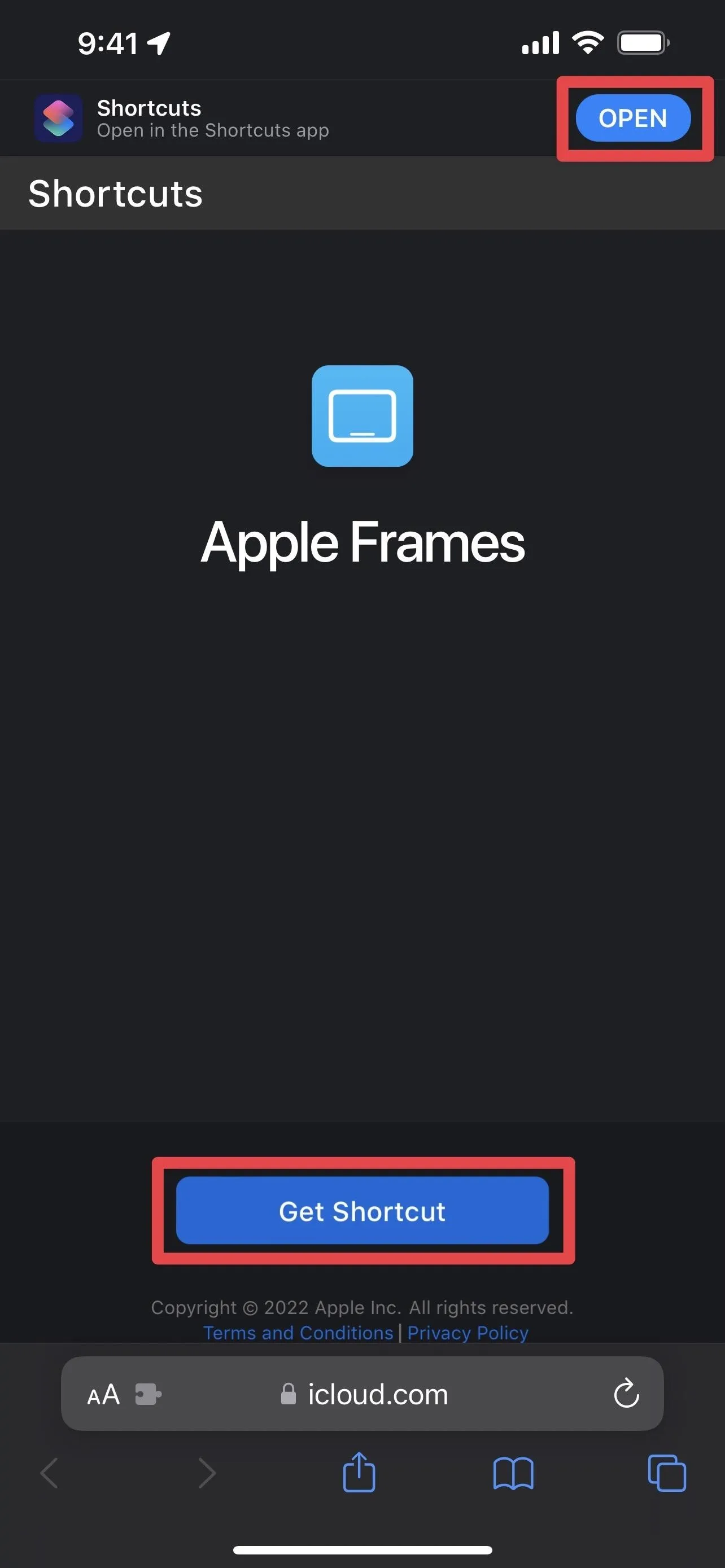
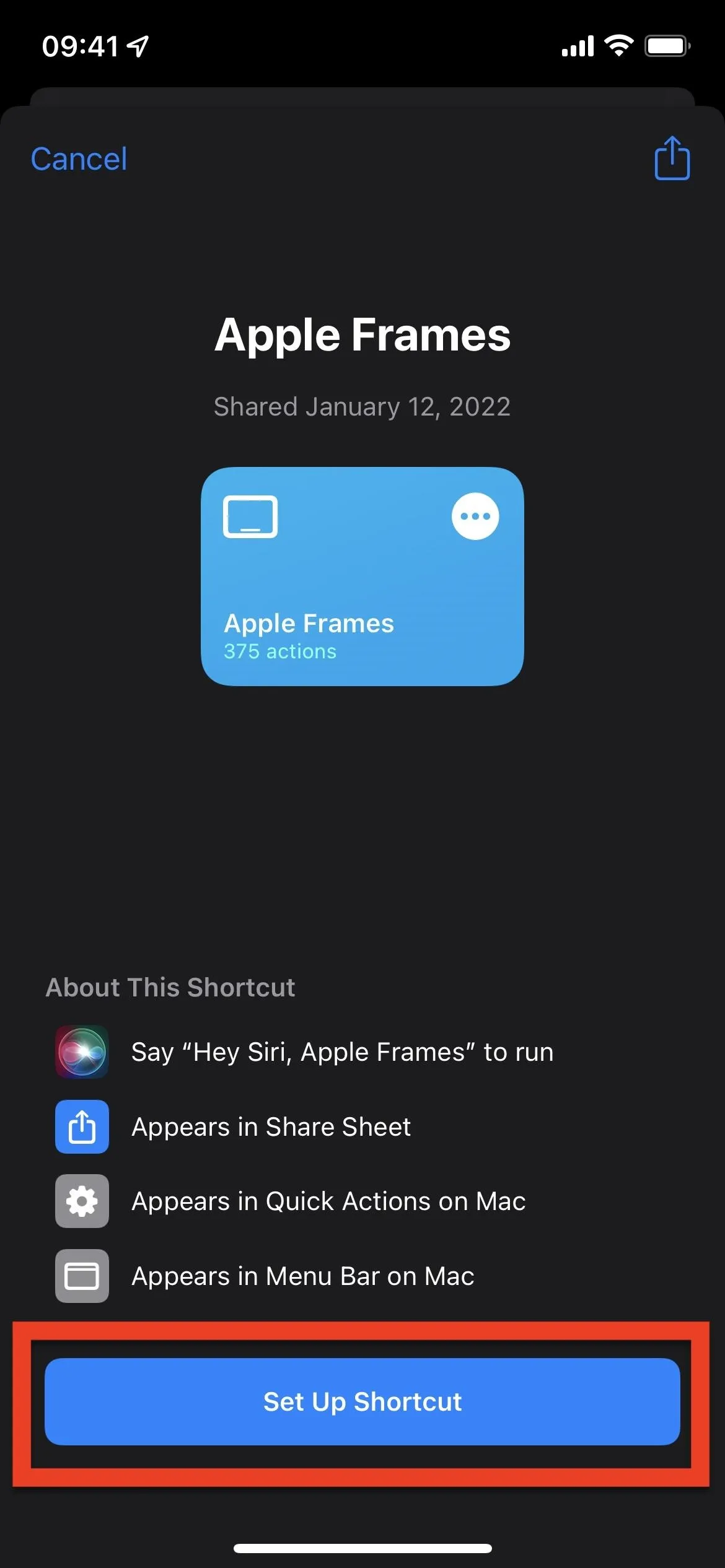
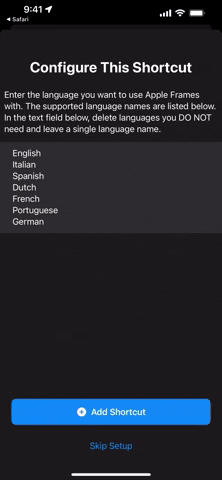



Step 2: Take Your Screenshots (Skip if You Have Them Already)
Take the screenshot or screenshots you need. The shortcut can frame multiple screenshots side by side into one image. So if you'd like to make one image with numerous framed screenshots, just ensure you have all the screenshots ready.
- iPhones with Face ID: Press the Side and Volume Up buttons together
- iPhones with Touch ID: Press the Side or Top button and Home buttons together
- iPads: Press the Top button and either Volume button together
Don't crop screenshots with the screenshot editor or Photos app because the shortcut won't be able to detect the device's model.
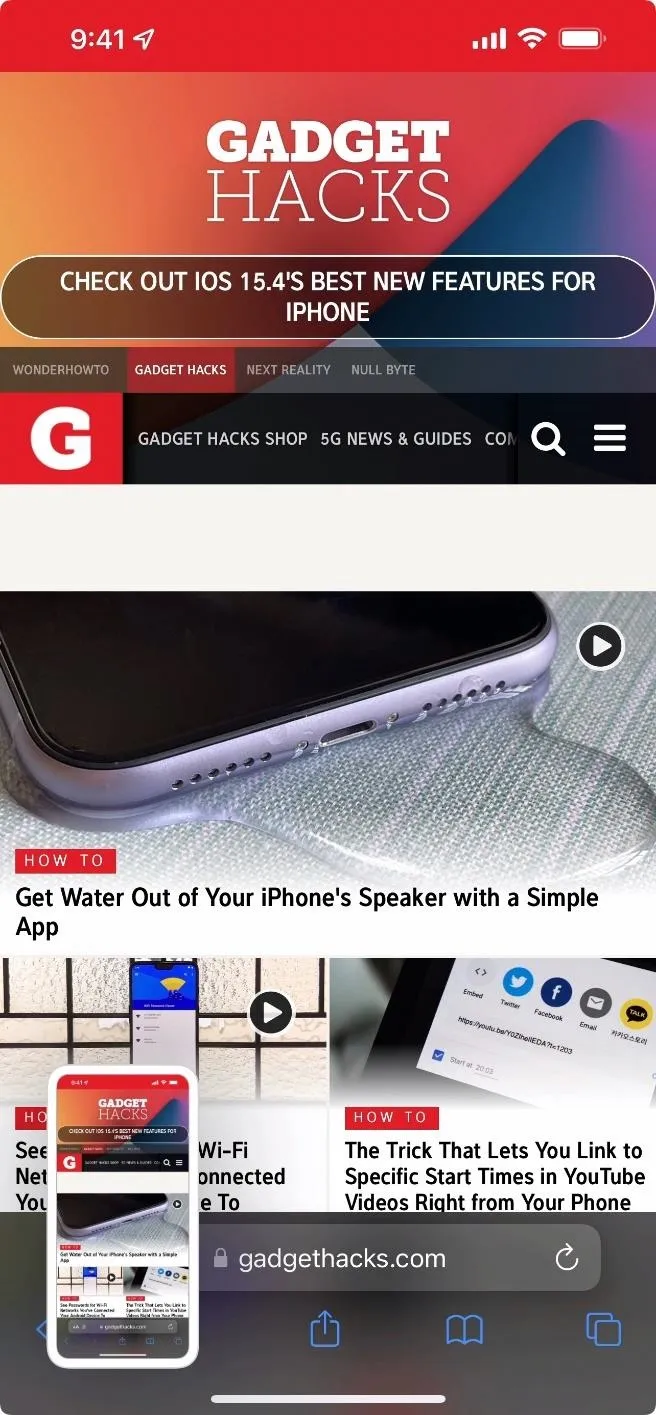
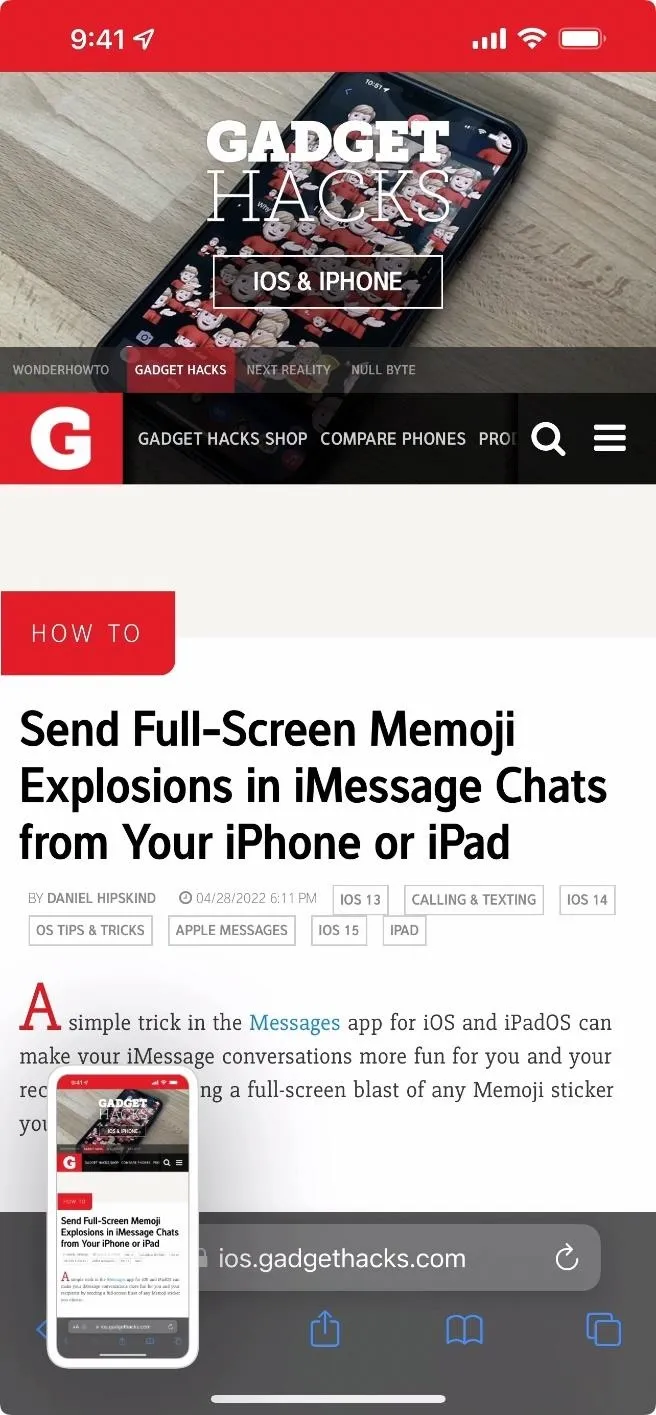


Step 3: Run the Shortcut
With your screenshots ready to go, tap on the "Apple Frames" shortcut in your "My Shortcuts" library. If it's the first time running, it'll instruct you to download the Frames.json file to iCloud. Hit "OK" and "Allow" to do that, or the shortcut won't work.
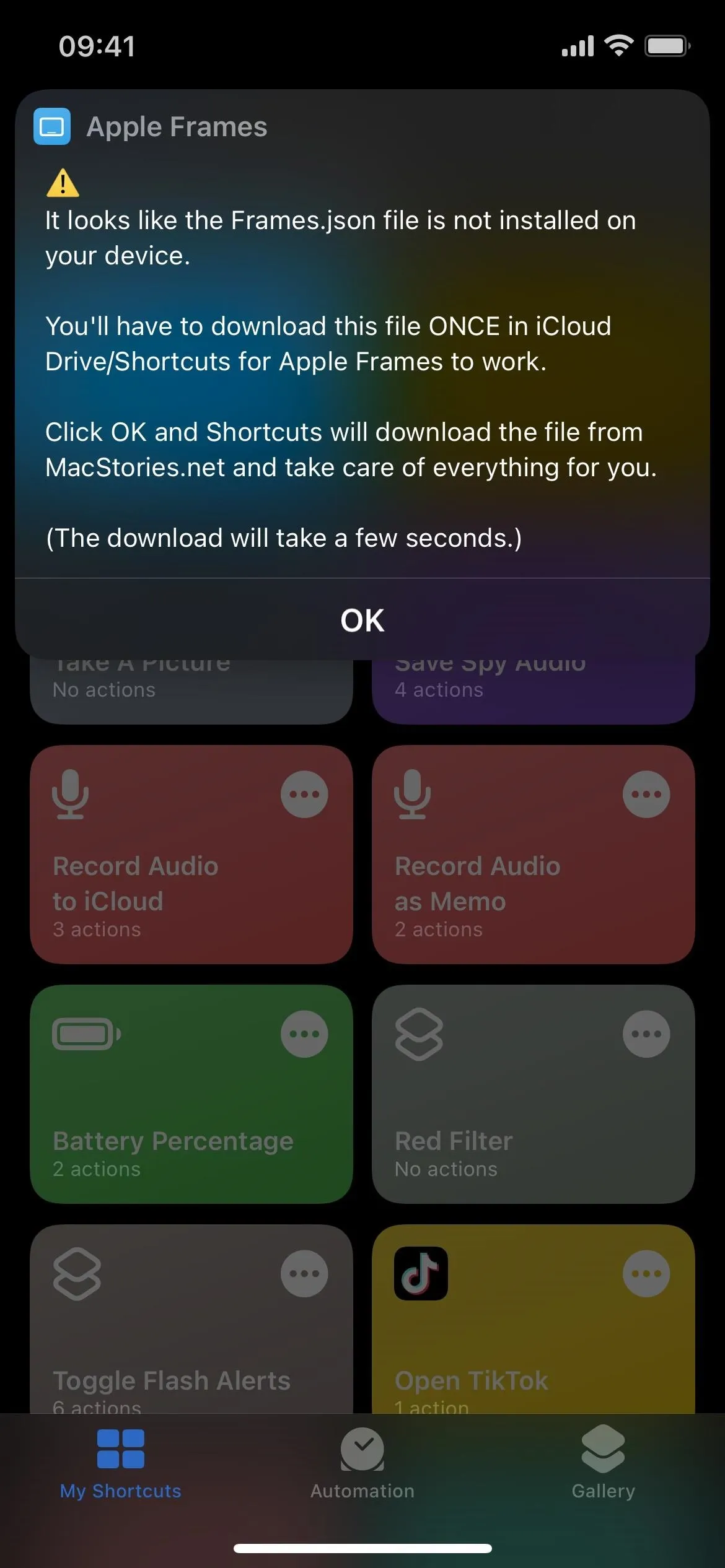
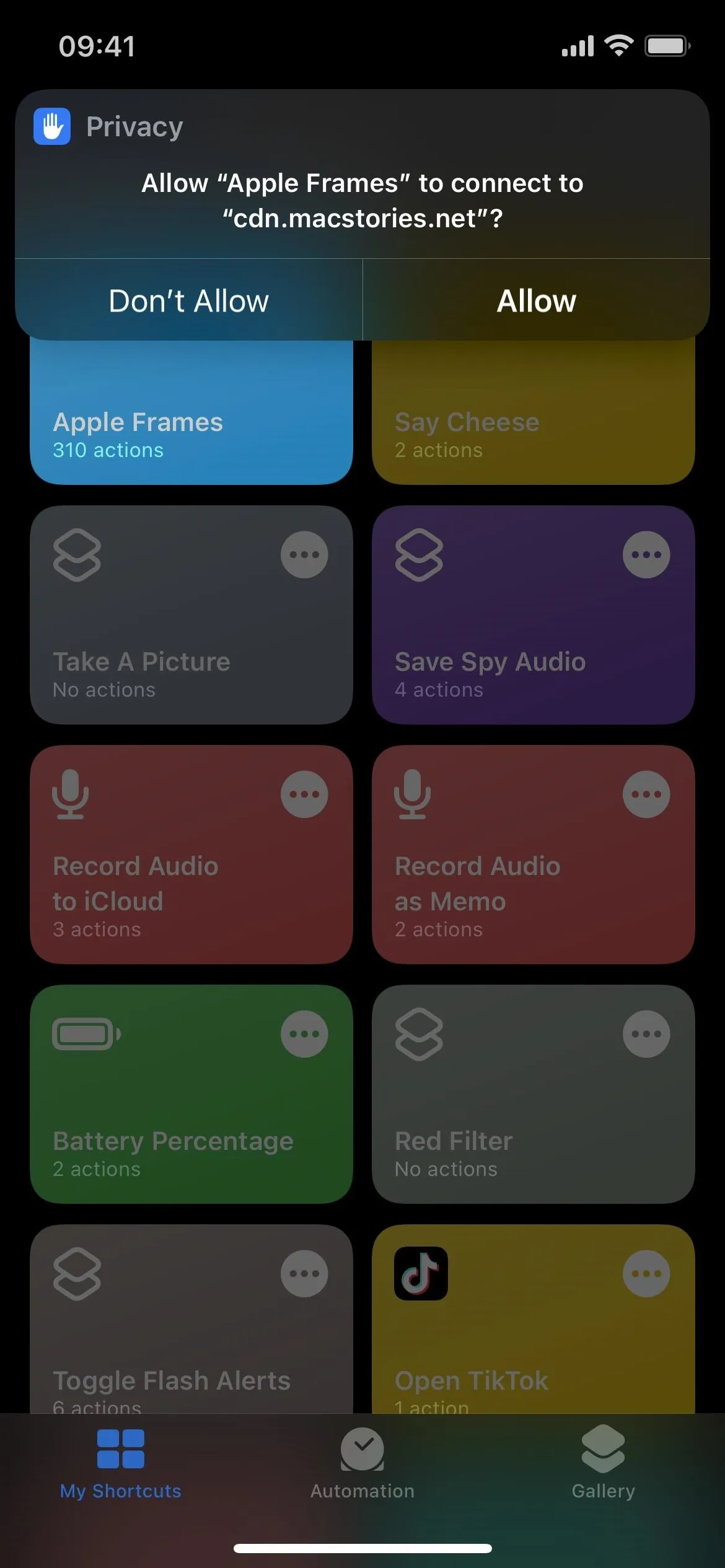
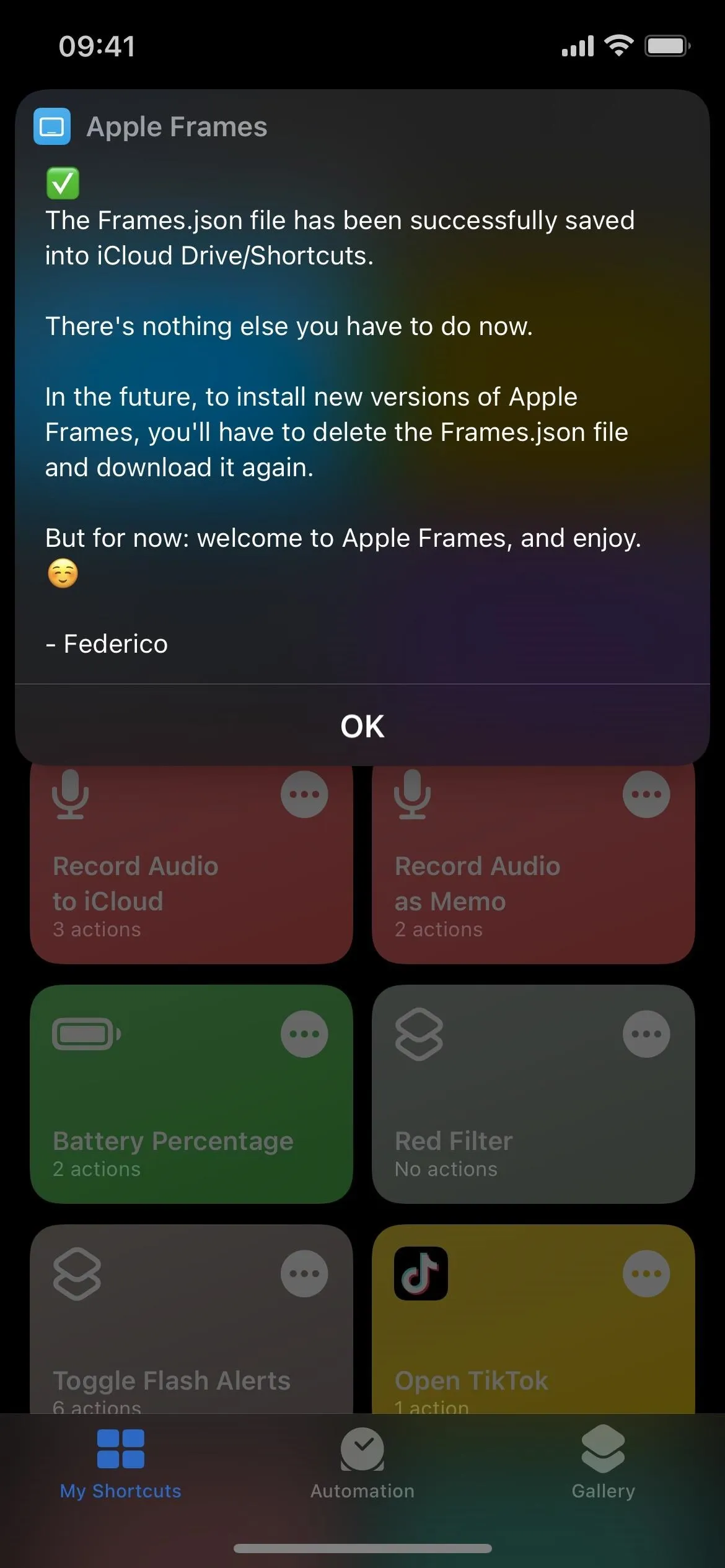



With the Frames.json file installed, tap the shortcut again if it doesn't automatically continue. Keep in mind that it may take a while to run since there are a lot of actions.
The image picker will open, and you can select one or more screenshots to frame. If you want to frame multiple screenshots, the first image you tap will be on the left, going from left to right. The newest screenshots will be at the bottom of the page, but you can change the sorting later (see the section at the bottom of this article).
When all images are selected, tap "Done." It will ask you where you want the framed screenshots to go. If you receive any permission prompts to access photo albums, files, clipboard, or other areas of your device during the process, I recommend hitting "Always Allow" so you don't have to worry about permissions later.
- Save to Photos: Saves a PNG copy of the image with a transparent background to your Photos app.
- Save to Files: Saves a PNG copy of the image with a transparent background to a folder on iCloud Drive or On My iPhone in the Files app. You must give it a custom name before you can pick the directory.
- Copy: Copies a PNG image with a transparent background to your clipboard for you to paste wherever you need it.
- Copy as JPEG: Copies a JPEG image with a background to your clipboard for you to paste wherever you need it.
- Share: Opens a PNG copy of the image with a transparent background in the Share Sheet, where you can then download it or share it with a person, device, app, or action.
- Preview: Opens a PNG copy of the image with a transparent background in a Preview window, where you can use Markup and invoke the Share Sheet to download or share it.
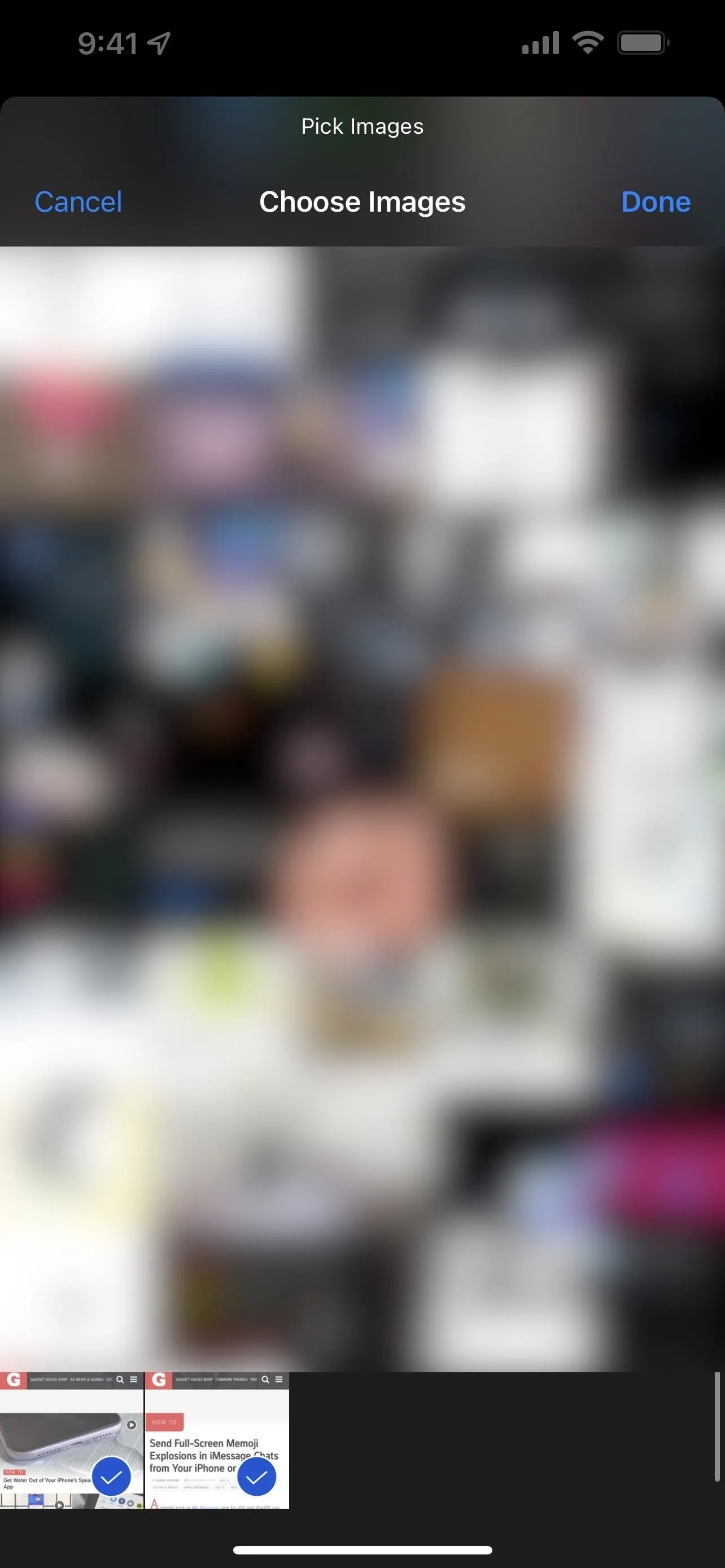
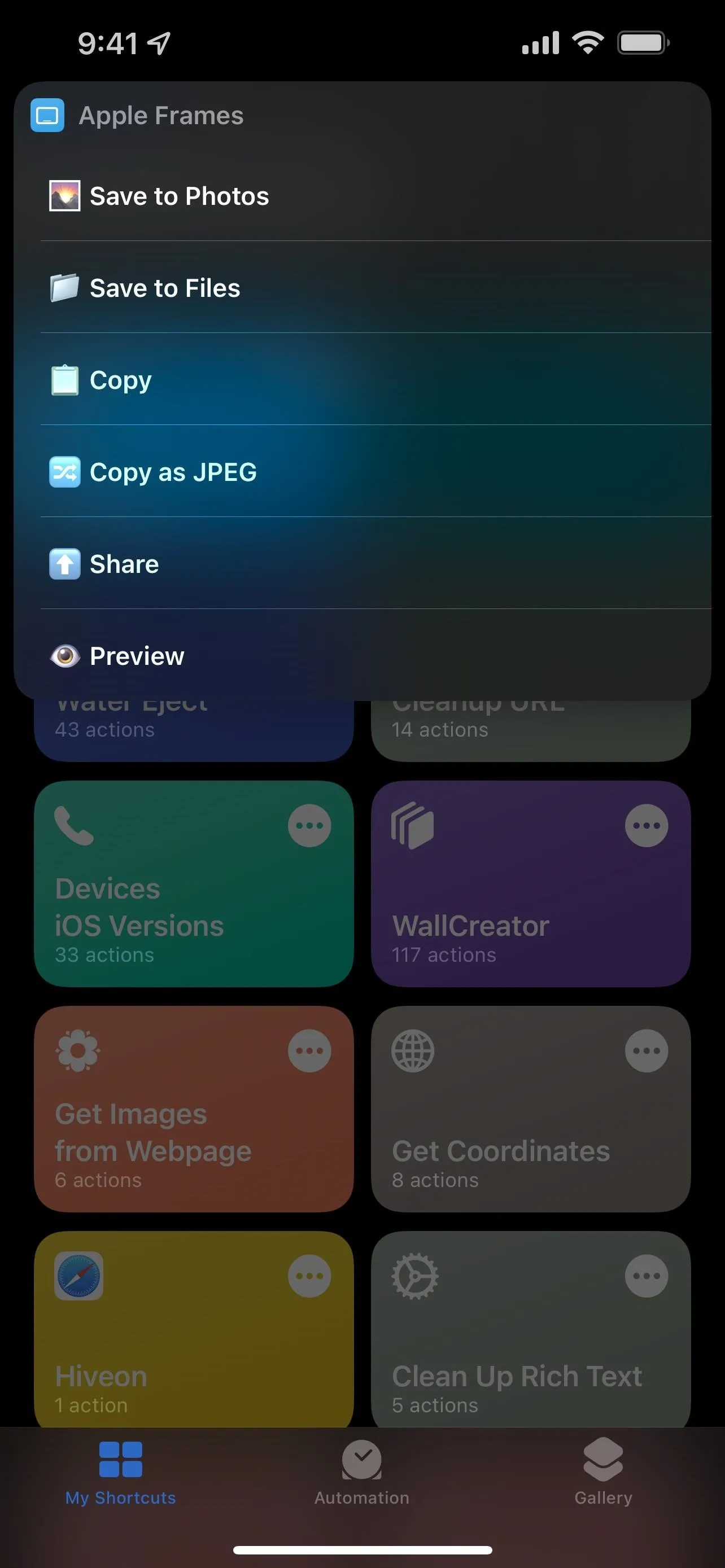
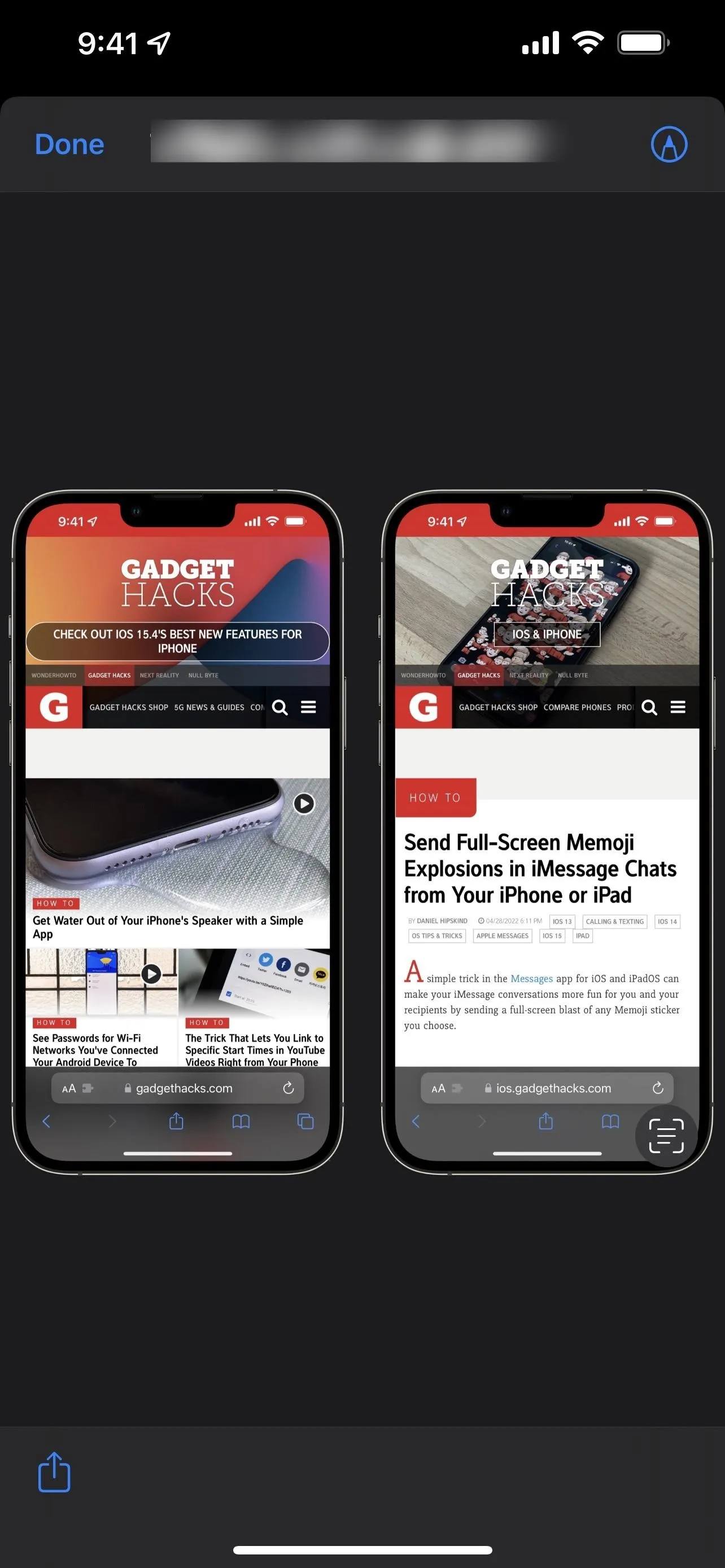



Customize the Shortcut
The only thing that bugs me about the shortcut is that it shows the newest images last in the image picker. If that seems backward to you also, you can switch it.
Open the editor for the shortcut (tap •••), find the "Find All Photos where Is a Screenshot" action, and then change the order from "Oldest First" to "Latest First." You can also turn the "Limit" toggle on and choose the number of images you want to see, like the last 10 or last 100. Hit the (X) button to save.
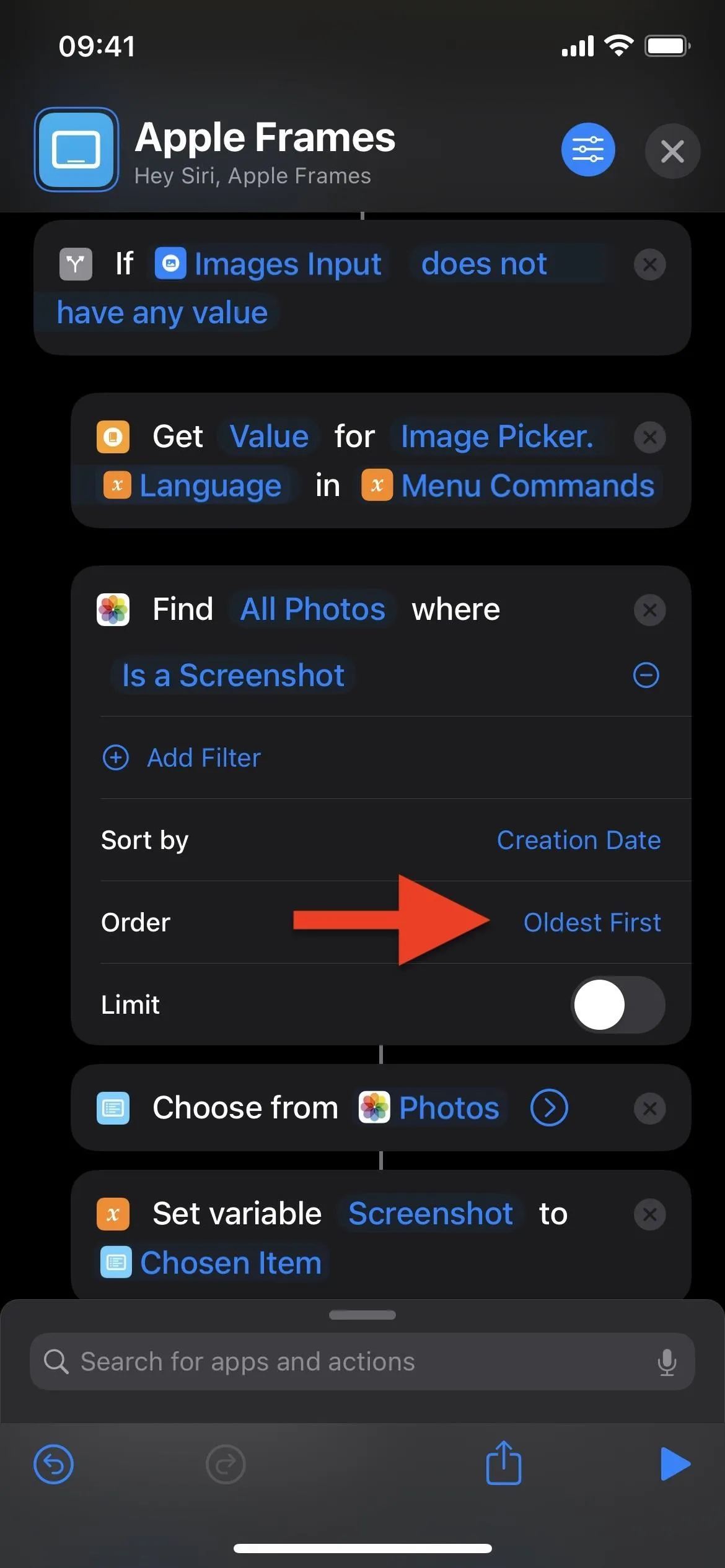
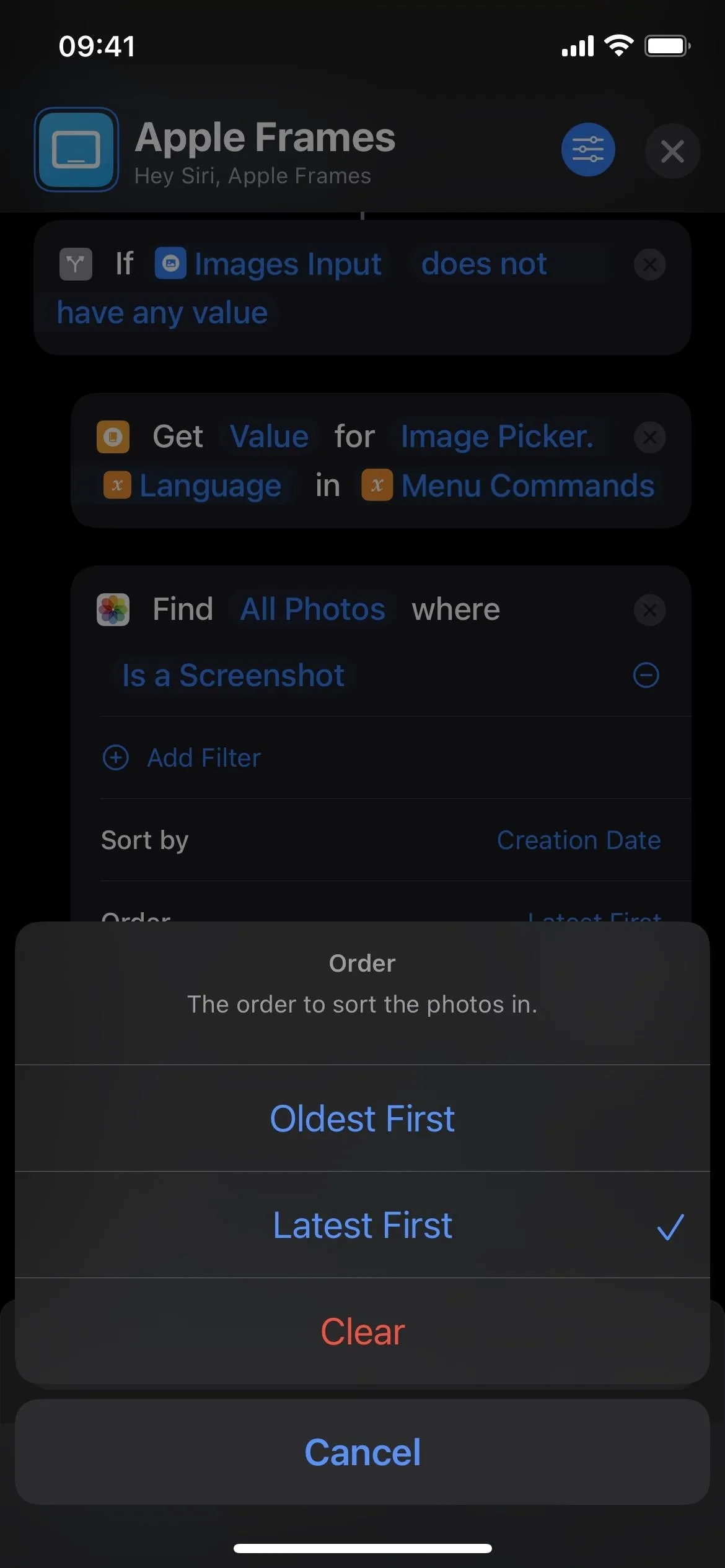
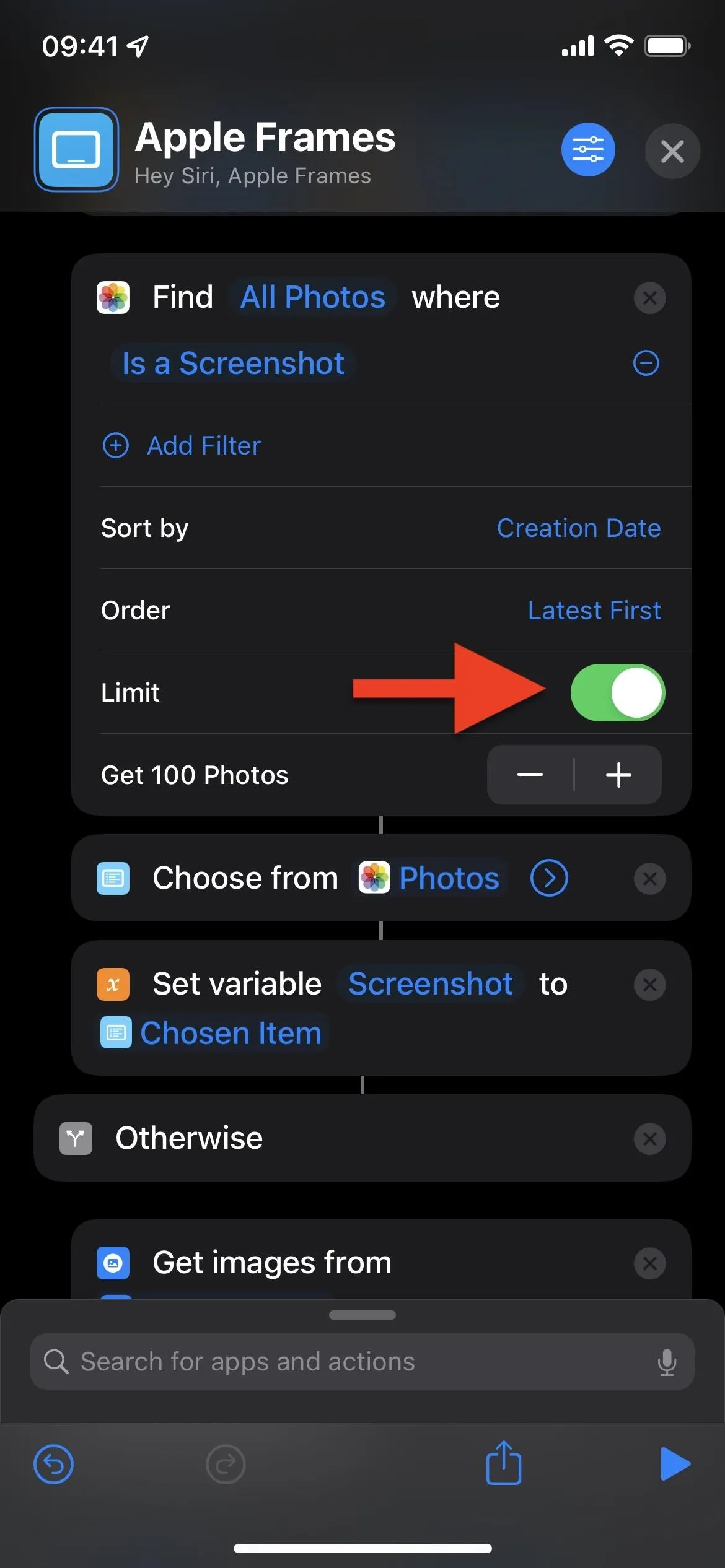



Cover photo, screenshots, and GIF by Daniel Hipskind/Gadget Hacks

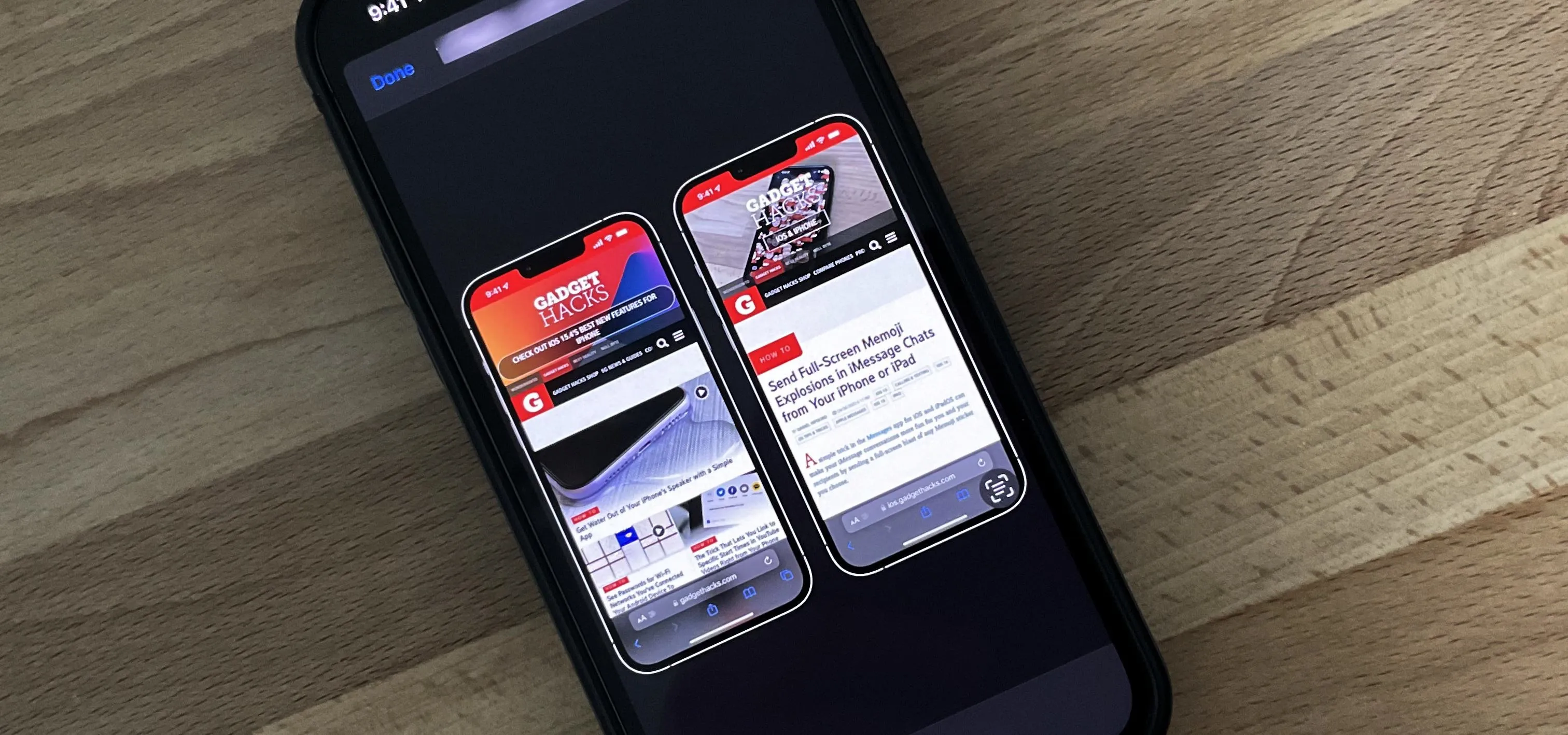


Comments
No Comments Exist
Be the first, drop a comment!